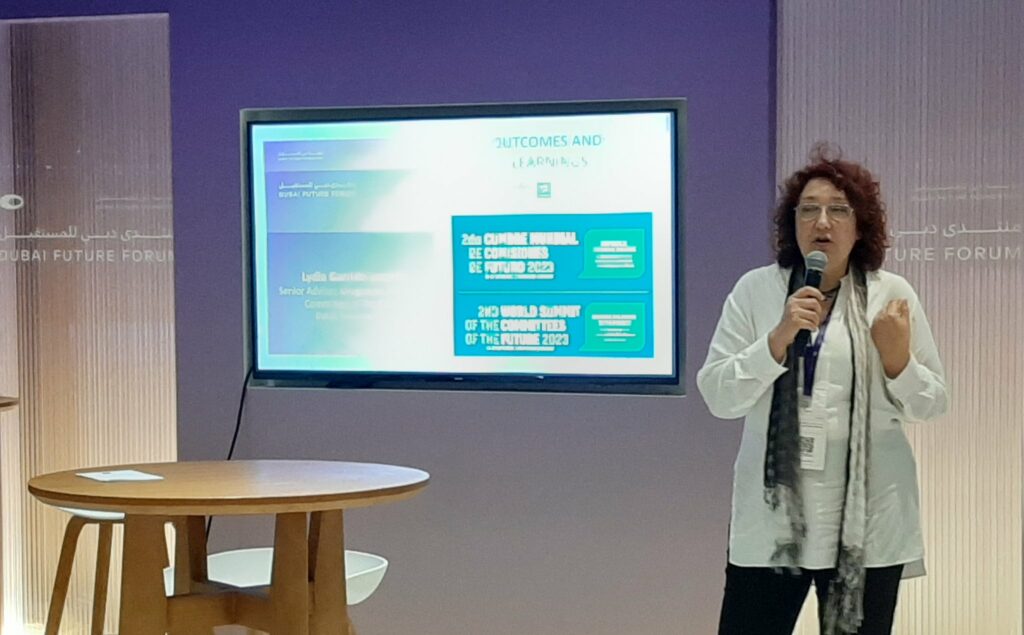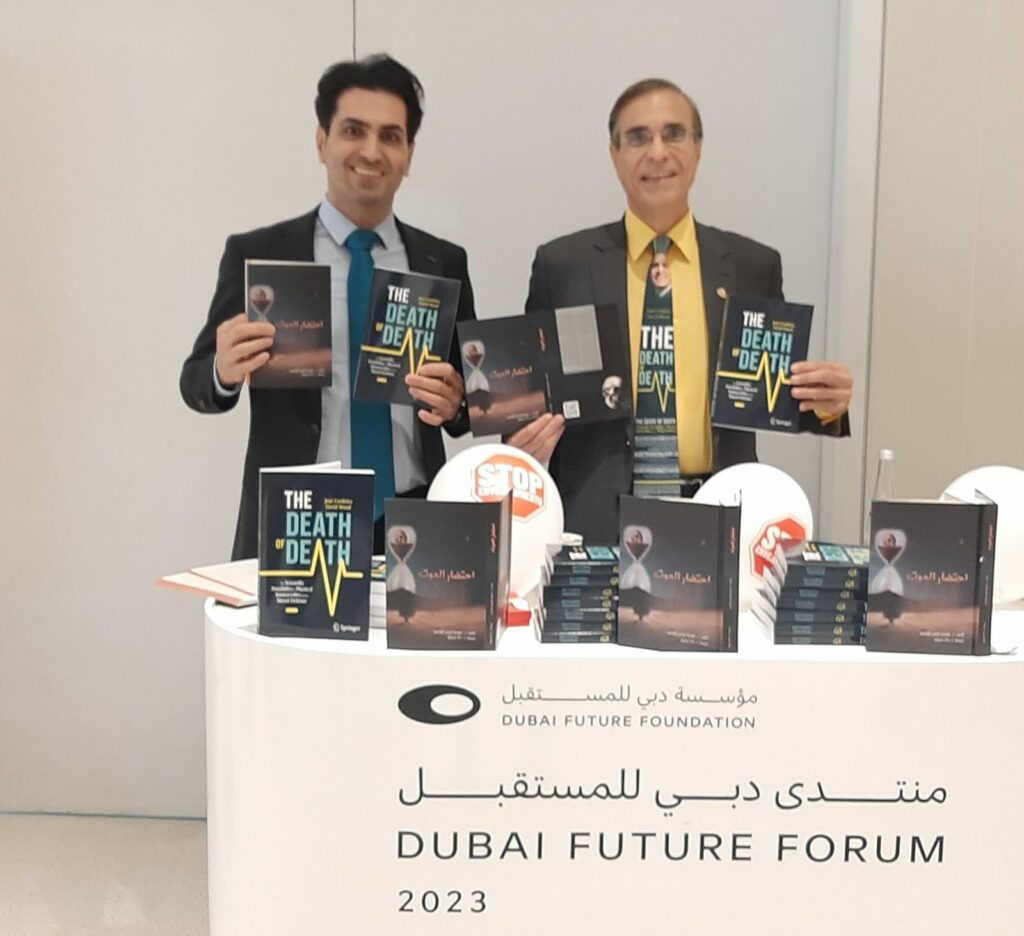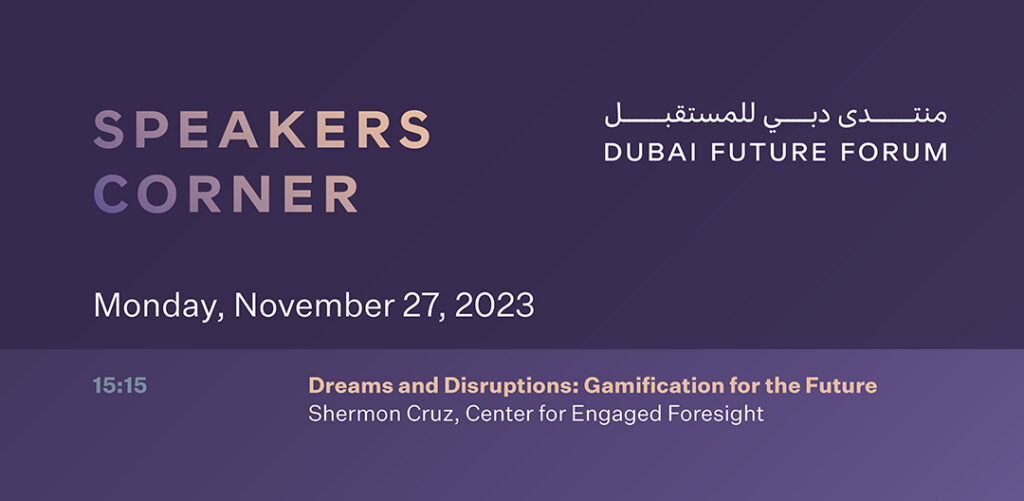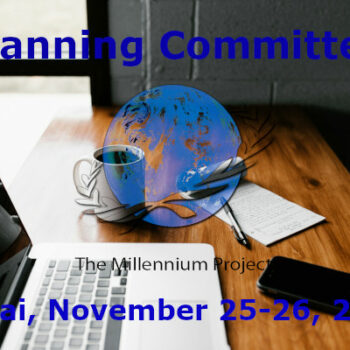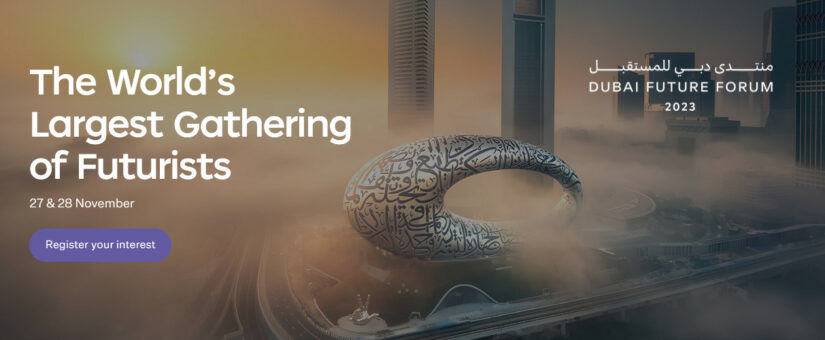
Dubai Future Forum – Nov. 27-28, 2023
- Posted by Mara Di Berardo
- On 20 November 2023
- 0 Comments
- conference, Dubai, Future Forum
The Dubai Future Forum, the second edition of one of the world’s largest gathering of Futurists, will take place in November 27-28, 2023 at the Museum of the Future in Dubai, United Arab Emirates. The event is hosted by the Dubai Future Foundation an the 2022 inaugural event brought together over 1000 such individuals and close to 50 foresight groups and organizations.
Among the key speakers joining the initiative this year, you will find Jerome Glenn, Millennium Project CEO, Gegi Karuri-Sebina, Southern Africa Node member, Epaminondas Christophilopoulos, Greece Node Chair, Ibon Zugasti, Spain Node Chair, and Shermon Cruz, APF and Philippines Node Chair, Paul Saffo, MP Board member. Many from The Millennium Project’ Nodes will be also attending the forum.
The final agenda focuses on four key themes: Transforming Humanity, Regenerating Nature, Empowering Generations, Transcending Collaboration, Foresight Insights.
Read the whole agenda and discover more about DFF: https://www.dubaifuture.ae/dubai-future-forum-2023/agenda
*** update ***


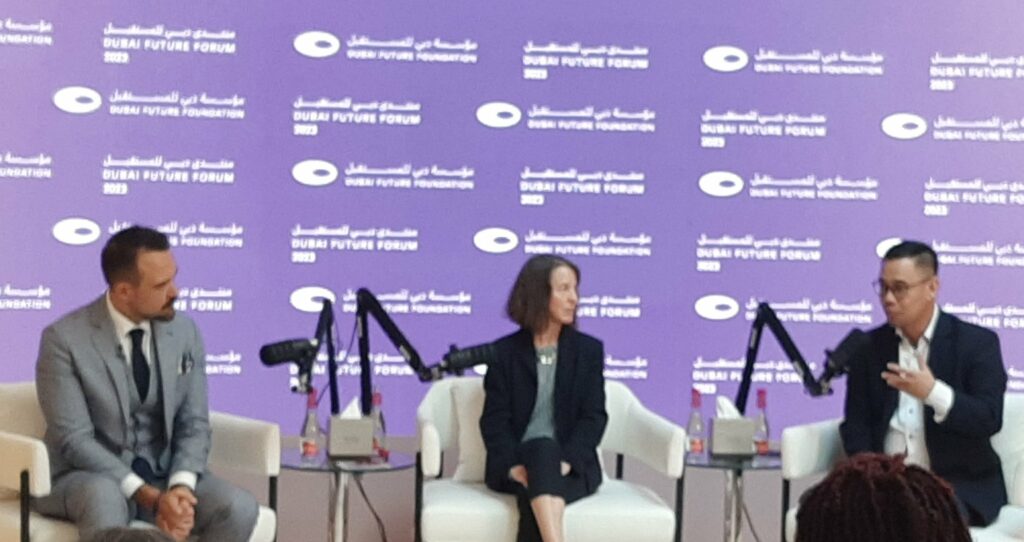

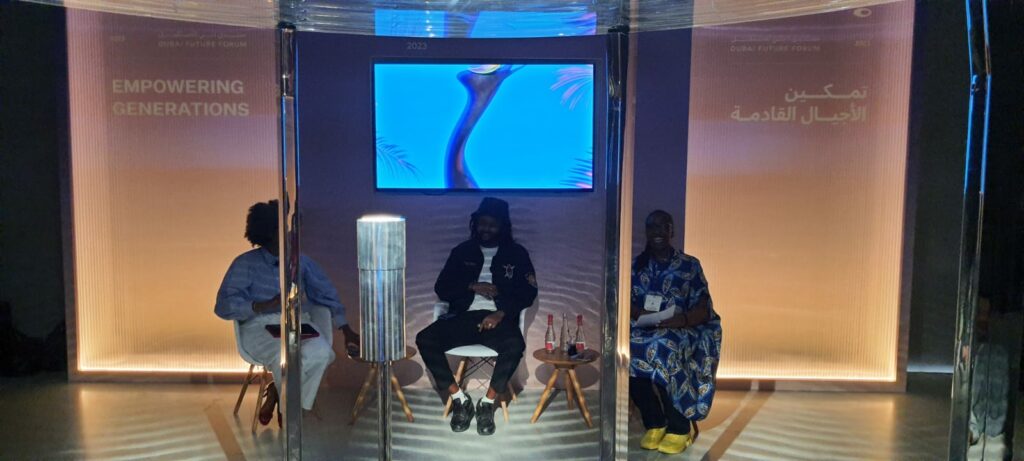
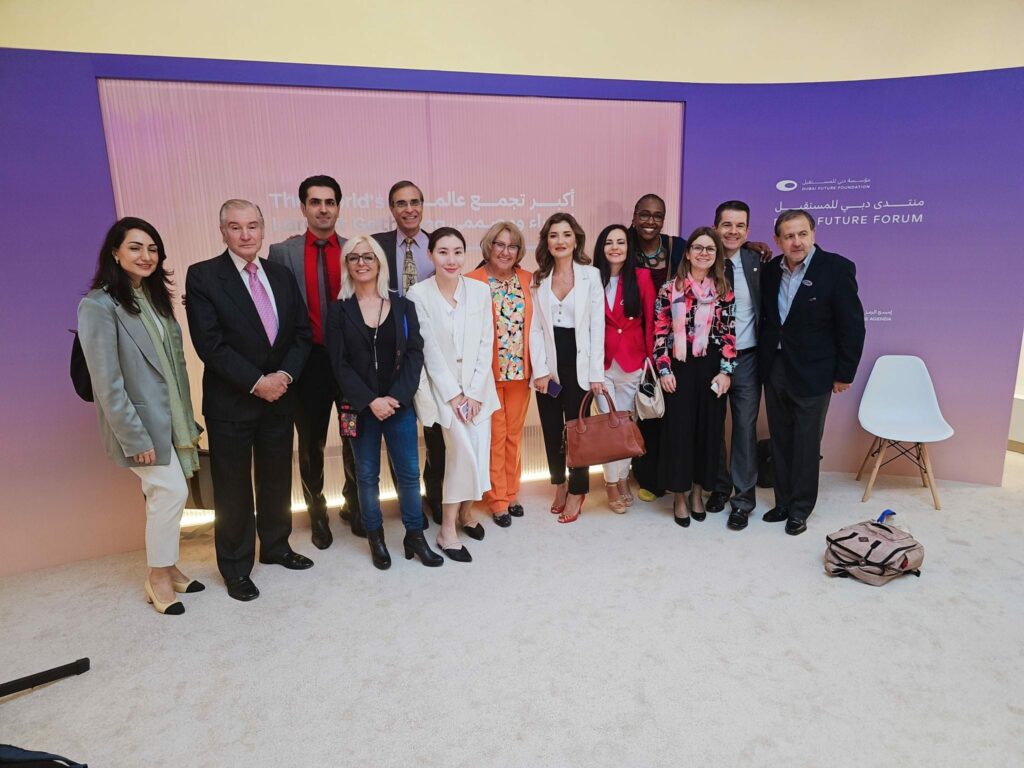

Artifcial General Intelligence: How Can We Regulate It for the Good of Humanity?, with Jerome Glenn and Geci Karuri-Sebina (Southern Africa Node Co-Chair), moderated by Ibon Zugasti (Spain Node Chair), November 27, 2023.
Report by Ibon Zugasti
The session started with a keynote presentation by Jerome Glenn where he highlighted that creating and enforcing regulations for the transition from Artificial Narrow Intelligence (ANI) to Artificial General intelligence (AGI) could be the most difficult challenge humanity has ever faced. Cooperation among national governments and the UN will determine the success or failure of this challenge. Estimates on when AGI will be available keep getting closer and closer, giving us less time to create regulatory system that we thought just a few years ago. The requirements to govern ANI, including generative AI, sometimes called genAI, which gets confused with Artificial General intelligence, are seriously different than the governance requirements for AGI. Distillation of key Insights from The Millennium Project‘s AGI study of 55 AGI leaders from the US, China, EU, Russia, and the UK on 22 questions were shared, along with next steps to assess AGI governance models and alternative global AGI scenarios.
During the open conversation with Geci Karuri Sebina, founding Chair and current Co-Chair of the MP South Africa Node, and other participants in the session, major issues were raised related to the inclusiveness of the governance of the ANI-AGI transition (who is deciding), the privacy aspects and cybersecurity challenges, future skills needed and the role of non state actors and key stakeholders such as Universities.
Watch the video recording of the session at https://www.youtube.com/watch?v=0Pb3NSdvAJM

“Anticipate Responsibly: How Should Governments Act on Foresight?” With Epaminondas Christophilopoulos (Greece Node Chair), November 27, 2023.
Report by Epaminondas Christophilopoulos
What a great session we had on anticipatory governance at the Dubai Future Forum.
I always cherish the years I spent as Head Scientific Advisor on Foresight at the Presidency of the Government. It was a great experience to be on the dark side of the moon, the unknown place. At the same time, I was worried because there are very few successful cases and it is very difficult to talk about failures. And I was totally worried that we were going to have a sallow, boring discussion, but we had a crowded hall and amazing discussions. Nevertheless, I was moderating 3 amazing panelists Dimitri Lorenzani (from the Cabinet of Vice-President Maroš Šefčovič ), Aarathi Krishnan, who has been recently working with the UN system and governments globally, and Cheryl Chung, with a huge experience at the Singapore government.
-We talked about the need to be anticipatory, particularly in the space of risk, we talked about how “Good intentions alone cannot prevent harm and good intentions alone can cause harm”,
-We talked about the need to adjust to local needs and also to not be afraid to experiment even at high government levels.
-We talked about the EU’s investment in anticipatory governance the recent years and the need to integrate more foresight, especially in policies related to emerging technologies like A.I.
Dimitri, Aarathi, Cheryl thank you so much!
The Dubai Future Forum hashtag#DFF, Dubai Future Foundation offered again this year a hospitable place for discussions with experts across the globe. It is very difficult to remove the European /white caucasian lenses, and DFF offers exactly this.
Watch the video recording of the session at https://www.youtube.com/watch?v=Yk2eBUCPTGw
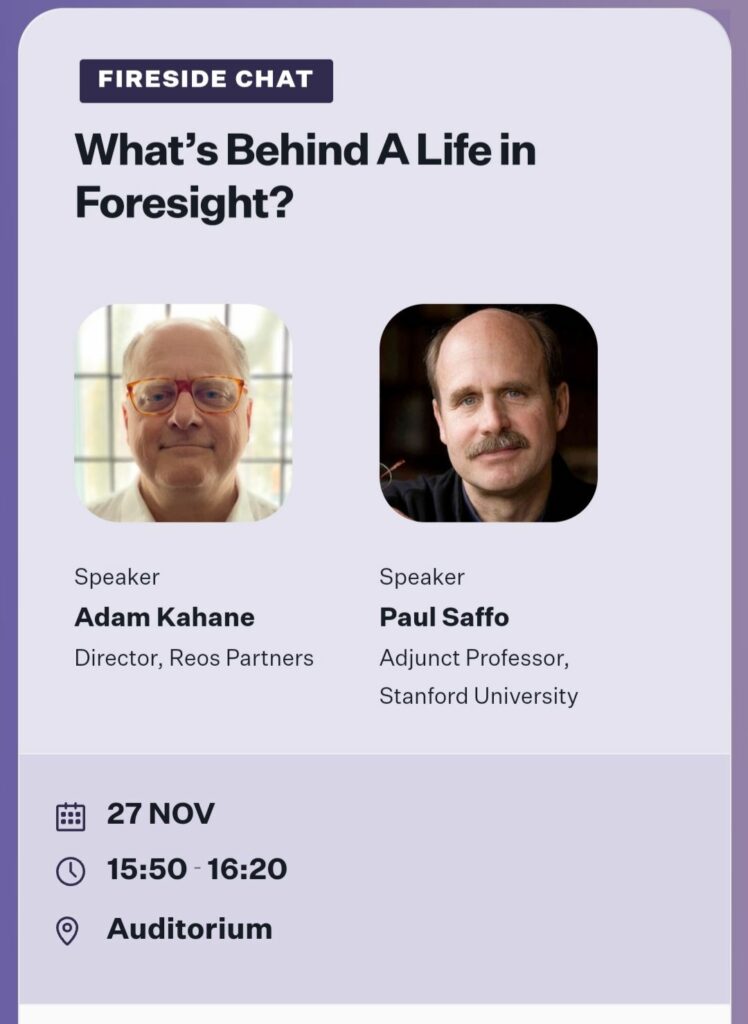
“What’s Behind A Life in Foresight?” With Paul Saffo, Board member, November 27, 2023
Highlights by Diana Stafie
- The essence of doing futures work is for creating, not predicting.
- Engaging in futures work with strangers and diverse profiles, not just like-minded colleagues.
- Emphasizing that agreement isn’t necessary for shaping the future. The future it’s not about consensus.
- The crucial need for love, justice, and power in creating better futures, all applied with intention.
Watch the video recording of the session at https://www.youtube.com/watch?v=I8JeokIWSLU&t=26429s (from 7:28:00)
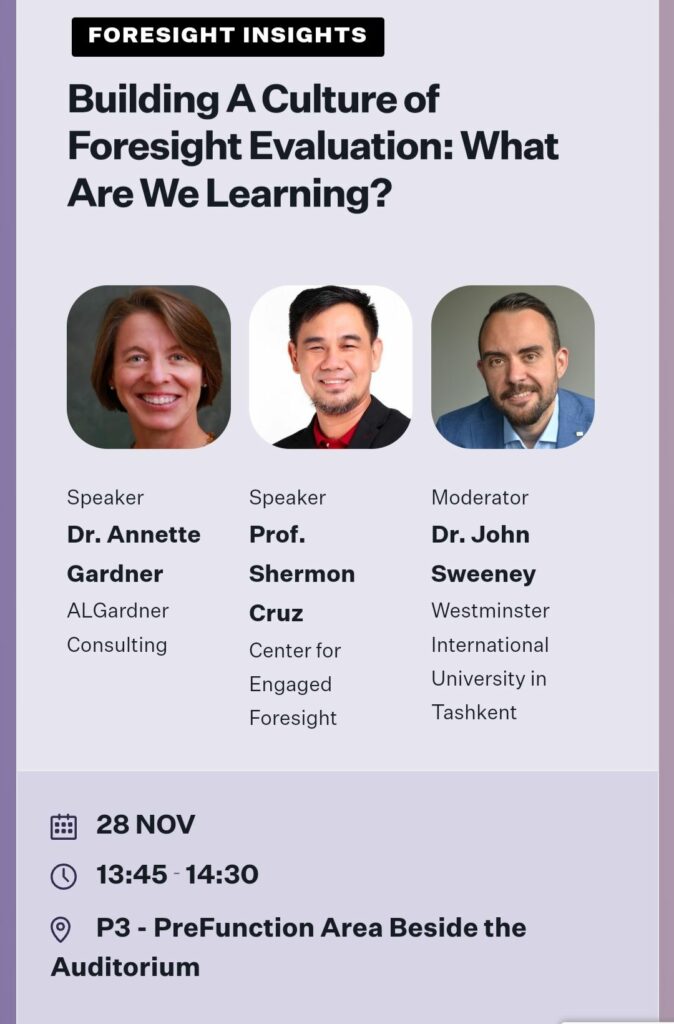
“Building a Culture of Foresight Evaluation: What are We Learning?” With Shermon Cruz, Philippines Node and APF Chair, November 28, 2023.
Report by Shermon Cruz
We had an excellent session on Building a Culture of Foresight Evaluation at the Dubai Future Forum, and I am so pleased to share the moment and unpack this with Annette L. Gardner and John A. Sweeney. Thanks to the DUBAI FUTURE FOUNDATION and Team, and Patrick Noack for the opportunity to delve into the work of the Association of Professional Futurists – APF Foresight Evaluation Report and discuss the case of the Center for Engaged Foresight (CEF) foresight evaluation approach which Annette L Gardner commented as a gold standard for foresight practitioners and researchers alike. I’ll take that comment from Annette any time of the day! Thank you. That means a lot to us at the Center for Engaged Foresight (CEF)!
So, it also means we need to have more conversations and case build-up about evaluating foresight practice, work, risk, learning, culture, competency, engagement, impact, and more; futurists must collaborate and deepen their interface with professional evaluators and auditors. Overall, incorporating evaluation into professional foresight practice offers several benefits and advantages that can enhance the effectiveness and reliability of our work for our clients, stakeholders, and the communities that we serve:
- Evaluation provides opportunities for learning from past successes and failures. Analyzing the outcomes of foresight exercises enables practitioners to identify areas for improvement and refine design, approaches, methods, delivery, and models.
- By integrating evaluation as part of the cycle of foresight practice, futurists and practitioners can be held accountable for their work. This accountability can improve transparency and trust in foresight practitioners and processes
- Continuous evaluation allows practitioners to adapt to changing work and context conditions. Evaluation enables practitioners to be contextually relevant and remain engagedly adaptive.
- Evaluation allows practitioners to benchmark performance against global standards, if any. But I think standards or better good practice or practices must be defined. This could be framed and discussed by organizations that aim to create and acknowledge the necessity of having some means of acknowledging standards of excellence in foresight practice and future studies, such as the APF, the WFSF, the Global Future Society, or by a network of partners. This can be generative as well, like peer-to-peer, or it could be web-driven.
- Evaluation enables organizations to allocate resources more efficiently and effectively by identifying which areas of the foresight phase or cycle, whatever you may call it, will require more or less intervention or investment.
- Foresight practitioners who incorporate evaluation into their work can build credibility over time. Foresight evaluation demonstrates a commitment to professional and global foresight excellence for continuous improvement and learning.
Watch the video recording of the session at https://www.youtube.com/watch?v=DgWSuhNXUFo
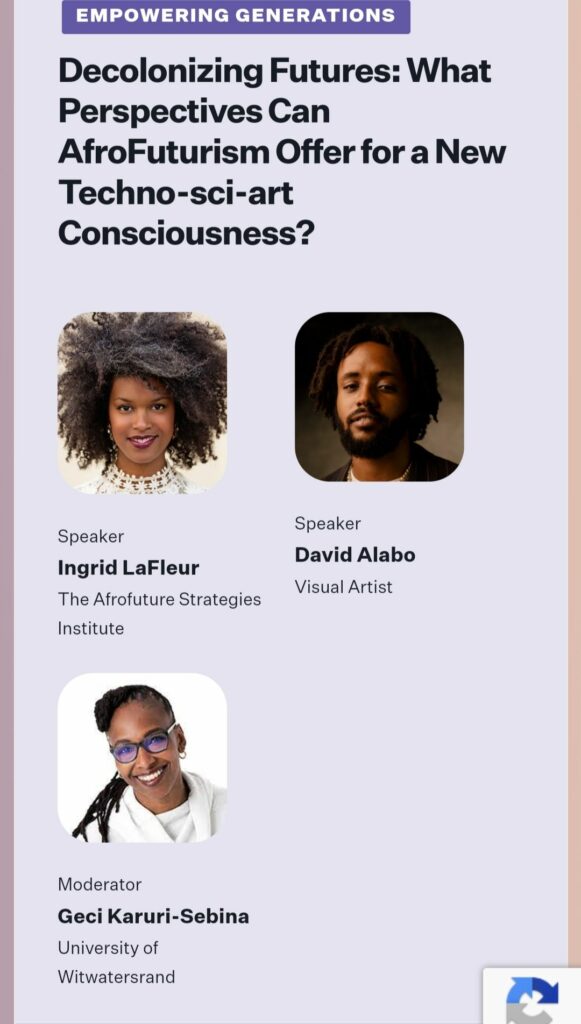
Decolonizing Futures: What Perspectives can AfroFuturism Offer for a New Techno-sci-art Consciousness? with Geci Karuri-Sebina, founding Chair and Co-Chair of the Southern Africa Node, November 28, 2023
Watch the video recording of the session at https://www.youtube.com/watch?v=F3ECRf8QKdg
Speakers’s Corner
